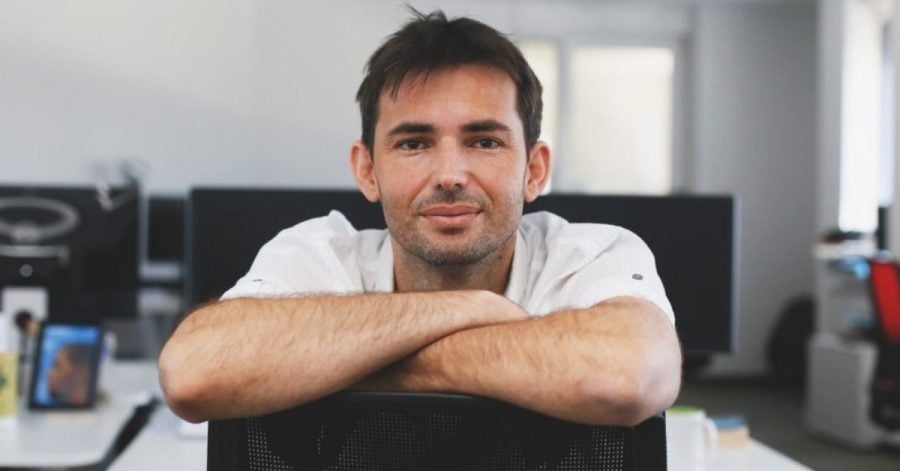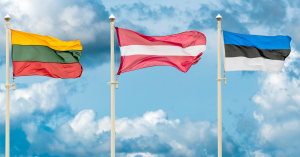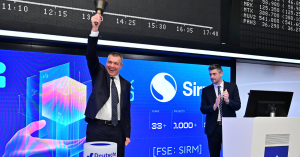An experienced AI engineer and entrepreneur, Mislav Malenica has been on a mission to create emotionally intelligent AI solutions. With expertise in AI, machine learning, game theory, and human behavior modeling, his vision for the future is one where humans and artificial intelligence work together to achieve prosperity.
As a president of the Croatian Artificial Intelligence Association (CroAI), Malenica and the CroAI team also aim to bring together leading companies and startups in the field of AI in the country.
In an interview with The Recursive, the Croatian entrepreneur reflects on what it takes to build and cultivate a strong AI community and how to create opportunities for AI professionals and help them realize their ideas.
The Recursive: How was CroAI born and what is the story behind it?
Mislav Malenica: The idea was to start as a classical Association focusing on policy, policy makers and so on. However couple of years later we pivoted into a movement, saying all these things with policies are important, but for us it is maybe a waste of time – so let’s focus on building a super strong community that support their people in doing crazy things and experimenting and trying in building companies in doing things that haven’t been done before.
Most countries across the region are actually developing their AI strategy. How do you create a responsible AI strategy?
I personally think that creating an AI strategy is a waste of time – for us, we tried, we participated, we invested time, energy, and so on. And I would love to be able to say something like “based on data, we now have 10 more companies that are doing AI, we now have better processes, we now have more funding for AI and so on.”
Maybe in 10 years, it will create more opportunities for some companies to get more EU funds. But these are not the companies that will change the world. These are not the companies that will be exciting, and so on.
Companies that will change the world and their founders will do it regardless of these AI strategies. That’s why I think that for us in Europe, writing an AI strategy 10 years ago made sense because back then it was brave. Right now, you’re doing it because you’re catching up and because someone asks you to do it, and you feel that you need to do it.
What are the biggest challenges that you have seen organizations face when they are developing and using AI products?
The biggest is a lack of education. I would say like a lot of people are now reacting only to trends and to what is trending at the moment. Two years ago, the buzz was about generating images, and people are saying “oh now AI generates images, this is the end, it’ll start generating videos, we’re all doomed” and so on.
Today, AI is generating texts and people are thinking “AI will generate all the texts in the world, we don’t need humans anymore” and so on. And I think it’s a lack of education, lack of experience in the field, because AI technology was here tens of years ago, and it was creating value. A lot of these things today are bots, they just don’t create any value, they just look nice.
Do you see enough collaboration between businesses, institutions, state actors, and so on when it comes to AI advances?
I don’t see it – but I think it’s not about the businesses or institutions, it’s more about educating the mindset. If you’re in Silicon Valley, you feel it – everybody’s constantly asking how to stay ahead, how to win, and with whom or whom do I need to partner in order to create something and sell it to the rest of the world.
We don’t have that mindset, we have a mindset that is saying “if I make this decision, maybe it will be a bad decision, and I’ll get hurt in the process – so I’m not ready to do it”.
I think that if you’re born in this region, you’re not starting from a good position. If you want to be innovative and change the world you need to go against the flow.
You mentioned the AI Act before – what is your take on the latest developments with regulation efforts in the EU and the US?
A few years ago, when we started to work and participate in the drafting of the AI act, I thought that this could be an inspiring document. And like my personal goal was to create a document that will be an inspiring one. What we got instead was bureaucracy, and not a lot of understanding of what people really need here.
It sounds good, it looks good and it has a form. It’s saying that it’s trying to protect the citizens – but I’m just saying no, that’s not what’s happening. Because, it’s creating so much uncertainty and anxiety if you’re like a small company, a startup or a student in a garage trying to build something, and you just want to understand what’s going on.
How do you see the current state and trajectory of the AI-powered product market in Croatia and the wider CEE region?
I still think that Croatia is the best place to live, best place to have people here working, building and so on. But you need to do sales in the US. Growing from Croatia and organically going to Austria, Bosnia, Italy, and so on – that’s not how you dominate the world.
So I would say this is an awesome place to have people building some of the most exciting technologies in the world. But in the end, you want to participate in the largest economy in the world that actually embraces innovation in the best possible way.
Which factors do you reckon will have the biggest impact on improving this outlook for CEE?
I’d say only heroes stories, so we need more heroes stories. I usually participate in discussions on the future of education and one of the conclusions is that the world is changing so fast that no country in the world, no educational system, and overall, no school in the world, or a professor can actually stay on top of what’s going on.
It means that you go to school, you’re learning things that are outdated. And when you finish it, when you get your diploma or you’ll learn skills that maybe stopped being relevant sometimes 10 years ago, sometimes two years ago.
And then we said that this is the power of the community, of this movement. Let’s not wait for us to die and the next generation to take over – let’s try to do something ourselves.
Want to learn more about our report on the State of AI in CEE? ++++ Download the full report here








